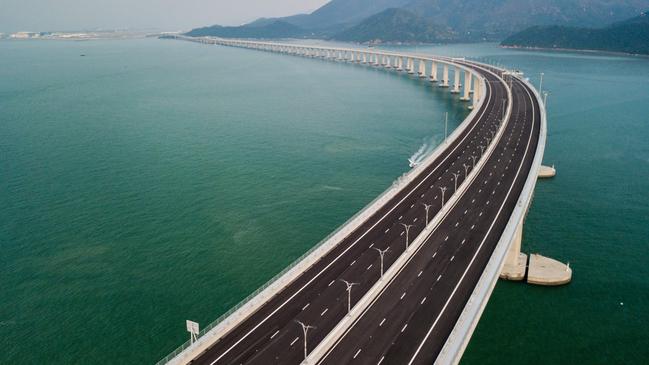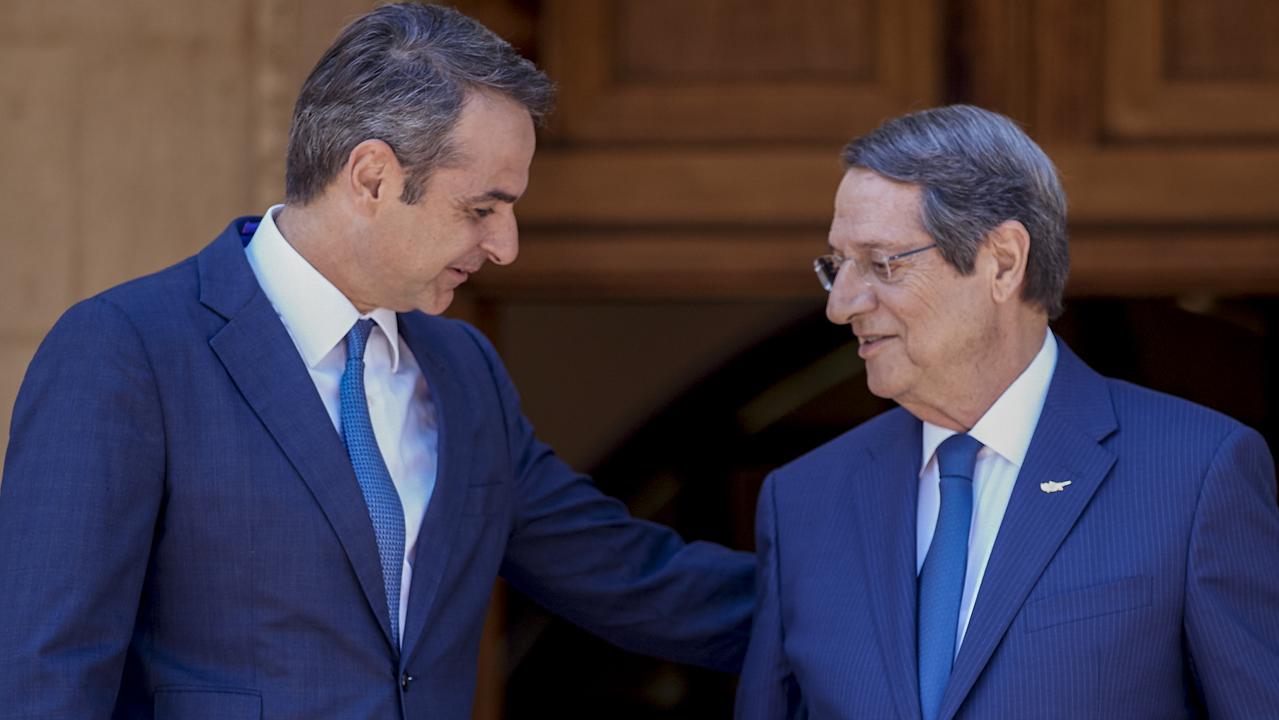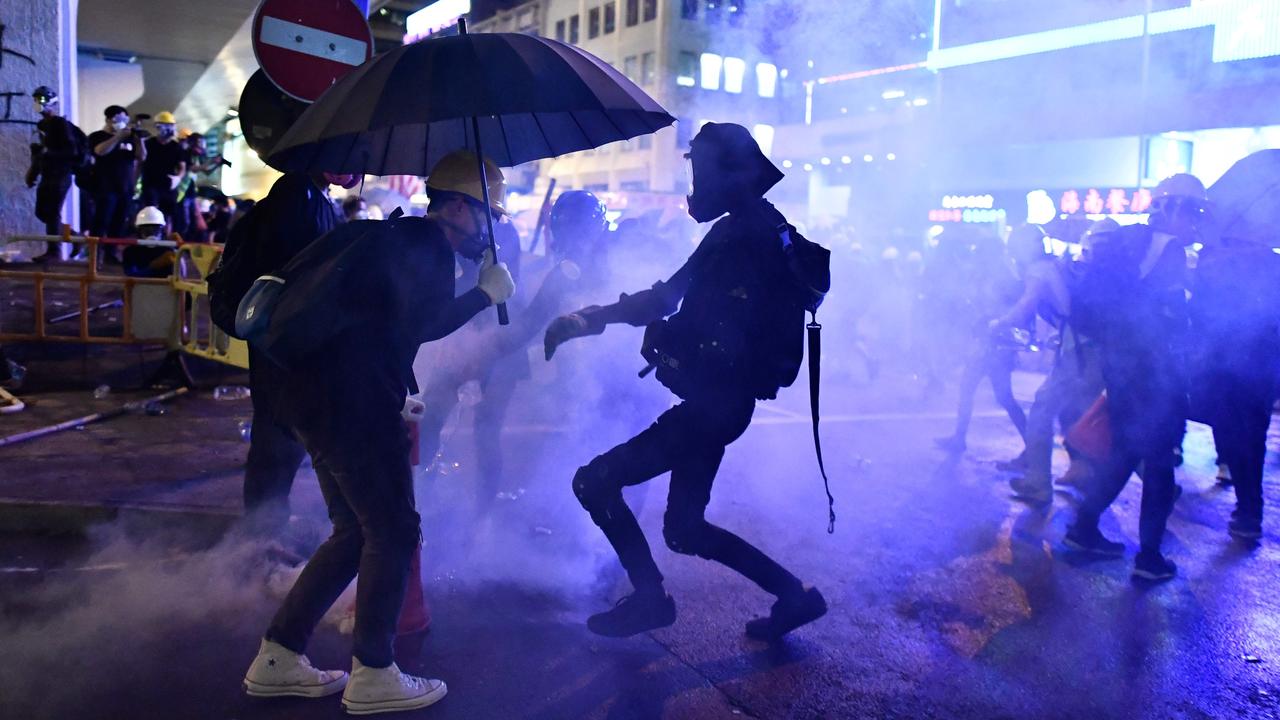China risking divides too wide to bridge

A great phalanx of Chinese politicians turned up this week to open the world’s longest sea-crossing bridge, connecting Hong Kong with the mainland city of Zhuhai and the former Portuguese colony of Macau. The throng of communist grandees, who strode into the opening ceremony with President Xi Jinping at their head, was fitting, because the project makes more sense as a political symbol than as a transport link.
Nine years in construction, 55km long and wildly over budget, the bridge consists of a series of six-lane bridges and tunnels, winding between man-made islands across the Pearl River delta. It was hailed at the opening by Han Zheng, a Chinese deputy premier, as a boost for the principle of “one country, two systems”. Under that ingenious slogan, in the late 1990s, communist-run China took back Hong Kong from Britain and Macau from Portugal, with a promise to preserve their rumbustious, neon-lit capitalist systems for 50 years. Han’s tribute was a bit disingenuous. No obvious free-market forces conjured the bridge into existence. Sceptics in Hong Kong call it an expensive way to bind their city and its seven million people to the motherland.
Hong Kong chief executive, Carrie Lam dutifully called the bridge a chance for her city to play a more active role in the development of mainland China, and in particular the “Greater Bay Area”, Team Xi’s name for the region spanning Hong Kong, Macau and the southern province of Guangdong. She also declared the bridge an engineering marvel, which it is.
But many Hong Kongers are not sure what it is for. Nifty routes to China are welcome. A high-speed railway between Hong Kong and the next-door metropolis of Shenzhen has been a hit since opening last month. There is less demand for new links to Macau, a gambling and tourism enclave, and still less to Zhuhai, the Chinese city that adjoins it. Most travellers will ride buses over the bridge, even though these may often be slower than the ferries that already criss-cross the delta. Private cars will need to collect separate permits from Hong Kong, Macau and Zhuhai to cross the bridge, a process that takes over two weeks. Hong Kong’s share of the bill for the project stands at $HK120 billion ($21bn).
Centrally planned follies are not the only example of Hong Kong scrambling to please the central government. In a first for Hong Kong, officials refused to renew the visa of a Financial Times editor, Victor Mallet, after he moderated a talk at the Foreign Correspondents’ Club by a local politician who advocates independence. Officials said the event crossed the “red line” dividing free speech from subversion.
A report in April by the US State Department expressed concerns about Hong Kong government actions with a “chilling effect” on free speech. It noted moves to criminalise the mocking of China’s national anthem, and the disqualification of independence candidates in Hong Kong’s semi-democratic elections. The British government said the rejection of Mallet’s visa undermines the freedom of the press, and called confidence in Hong Kong’s rights and freedoms “an essential component of its future success”.
Westerners have been trying these arguments on China since Deng Xiaoping, the paramount leader of the day, started offering “one country, two systems” in the early 1980s. The formula was adapted from an idea floated past the government of Taiwan a few years before, as a way to sweeten the prospect of reunification with the Chinese mainland under Communist rule. In 1984 Britain’s foreign secretary told Chinese counterparts that Hong Kong was “a Ming vase, an object of priceless value” that had to be handed over without a slip. Alas, the two sides never agreed what exactly the phrase “one country, two systems” was intended to protect. Deng took an unsentimental view of Hong Kong as a place made valuable by free markets and a strong, unelected government. If socialism were imposed on an unwilling Hong Kong, he said in 1984, it would lead to “turmoil”, if not armed conflict.
Deng, no liberal, seemed to accept some of the openness that makes Hong Kong tick. Describing its future, he talked of a city run by technocrats and business leaders who, as long as they loved China, should be allowed to criticise communism. He foresaw Taiwanese envoys in Hong Kong, free to argue their island’s merits “because the Communist Party cannot be toppled by criticism”.
Officials are less relaxed now. Zhang Xiaoming, director of the central government’s Hong Kong and Macau Affairs Office, on October 18 complained to bosses from Hong Kong news outlets that some residents “still adopt an antagonistic attitude towards the mainland’s political system”.
Defenders of Hong Kong’s pluralism typically urge China to have more confidence in its grip on the city, and not squeeze so hard. They may be missing a big change. Among Chinese officials, paranoia increasingly combines with hubris. Deng talked of preserving Hong Kong so that China could gain access to foreign capital, technology and management techniques. Today’s China is more confident, says Anson Chan, who served as chief secretary in Hong Kong under the British and for the first four years of Chinese rule.
Hong Kong remains important to China as a global financial centre. That tempers communist leaders’ irritation at grumbling from the city and their alarm at the rise of “Hong Konger” as a local identity”. But as confidence in an all-Chinese model grows, the perceived value of tolerating two systems shrinks. China should re-learn Deng’s self-knowledge, or risk divides too wide for any bridge.


